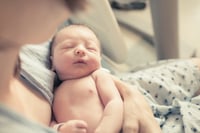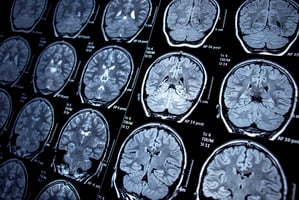Fetal Exposure to Alcohol Associated With Behavioral, Psychological Problems in Offspring

Children who were exposed to any amount of alcohol in the womb are more likely to be impulsive and diagnosed with separation anxiety and oppositional defiant disorder compared with children who were not exposed to alcohol in the womb, reports a study in AJP in Advance.
“To our knowledge, this is the largest examination of prenatal alcohol exposure and psychological, behavioral, and neurodevelopmental outcomes in preadolescence,” wrote Briana Lees, B.Psych., of the University of Sydney, Australia, and colleagues. The authors noted their study reaffirmed the many risks of heavy drinking during pregnancy, but “children with even the lowest levels of exposure demonstrate poorer psychological and behavioral outcomes as they enter adolescence.”
Lees and colleagues analyzed data from 9,719 children aged 9 to 11 who are part of the Adolescent Brain and Cognitive Development (ABCD) study, which aims to track brain development in a nationally diverse population of children from preadolescence to young adulthood. For ABCD, all children and their parents complete psychological and cognitive assessments periodically, and the children receive periodic brain scans.
Among the 9,719 children included in the analysis, 26% were exposed to alcohol during pregnancy. Compared with children with no alcohol exposure, those with any exposure had statistically greater average scores on the Child Behavior Checklist (CBCL), which measures emotional and behavioral problems, and greater impulsivity scores. Children with any exposure to alcohol were 21% more likely to have received a diagnosis of separation anxiety disorder and 17% more likely to have received a diagnosis of oppositional defiant disorder.
The researchers next grouped the children based on their mothers’ drinking habits during pregnancy: abstinent, light drinking during first seven weeks of pregnancy (about two drinks a week), light drinking throughout pregnancy (about one drink a week), and heavy drinking during first seven weeks of pregnancy (about five drinks a week). Women who drank heavily throughout pregnancy comprised less than 1% of the sample and were excluded from this analysis.
Compared with children whose mothers did not drink alcohol during pregnancy, children from all the other groups had higher scores on the CBCL and elevated risks of separation anxiety disorder and oppositional defiant disorder. Children whose mothers were light drinkers throughout pregnancy were also more likely to develop a phobia, while children whose mothers drank heavily in early pregnancy were more likely to report aggression, rule-breaking behaviors, withdrawn or depressed behavior, and to have a diagnosis of attention-deficit/hyperactivity disorder.
“Similar to previous conclusions drawn on the effects of prenatal alcohol exposure, our results suggest that there is no safe threshold for alcohol consumption during pregnancy,” Lees and colleagues concluded.
For related information, see the Psychiatric News article “Strategy Emerges to Combat Effects of Prenatal Alcohol Exposure.”




